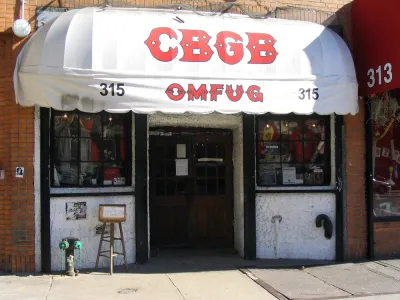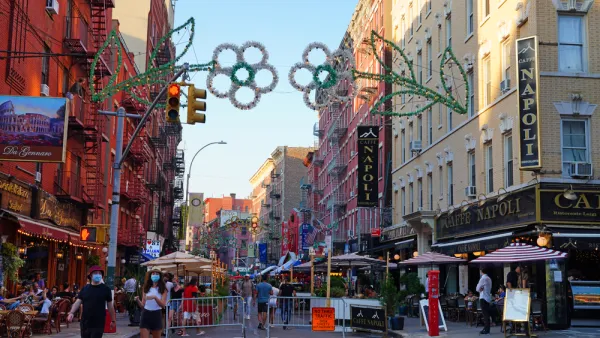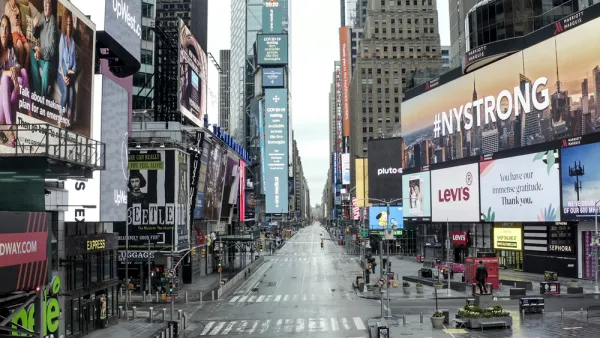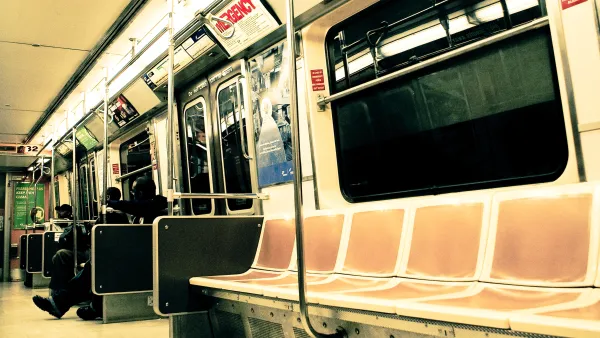Introducing the “CBGB theory of city planning.”

The work from home and hybrid work trends of the Covid-19 pandemic have persisted beyond the desires of the higher ups at Amazon, leaving Seattle’s political leaders searching for ways to bring people back downtown and replace the lost foot traffic and spending of the day-time workforce.
Seattle Mayor Bruce Harrell, for example, recently rolled out an updated “Downtown Activation Plan”—which notably lacked any mention of bringing downtown workforces back to the office in full.
Writing for PubliCola, Josh Feit has another suggestion: “Weirdos, Not Bros.”
“The first step to reviving downtown isn’t new housing, it starts with embracing the grim commercial real estate market, where vacancies recently increased from 22 percent to 24 percent,” writes Feit.
How does embracing vacancies help revitalize downtown? Like this: As commercial vacancies rise—new demand for Seattle office space fell 30% from January 2022 —rents drop. And as rents drop, the weirdos, rather than the big employers, move in. And by weirdos, I mean: creative-class, art-centric, small-scale retail. In short: The rebirth of downtown will be sparked not by Amazon, but by high vacancy rates, leading to low rents, leading to an influx of vibrant, small businesses, leading to new housing demand.
Feit calls this approach the “CBGB theory of city planning,” a reference to the famed, now extinct, nightclub on the Lower East Side of Manhattan that attracted waves of music scenes over the decades, but especially in the late 1970s, “[turning] the neighborhood into the epicenter of an urban shock wave that would change cities into magnetic destinations for brains, youth, talent, and commerce.”
More details on why Feit believes that the real estate market is already making space for Seattle’s CBGB moment can be read in the source article linked below.
FULL STORY: The CBGB Theory: Weirdos Not Bros Will Revive Downtown

Analysis: Cybertruck Fatality Rate Far Exceeds That of Ford Pinto
The Tesla Cybertruck was recalled seven times last year.

National Parks Layoffs Will Cause Communities to Lose Billions
Thousands of essential park workers were laid off this week, just before the busy spring break season.

Retro-silient?: America’s First “Eco-burb,” The Woodlands Turns 50
A master-planned community north of Houston offers lessons on green infrastructure and resilient design, but falls short of its founder’s lofty affordability and walkability goals.

Test News Post 1
This is a summary

Analysis: Cybertruck Fatality Rate Far Exceeds That of Ford Pinto
The Tesla Cybertruck was recalled seven times last year.

Test News Headline 46
Test for the image on the front page.
Urban Design for Planners 1: Software Tools
This six-course series explores essential urban design concepts using open source software and equips planners with the tools they need to participate fully in the urban design process.
Planning for Universal Design
Learn the tools for implementing Universal Design in planning regulations.
EMC Planning Group, Inc.
Planetizen
Planetizen
Mpact (formerly Rail~Volution)
Great Falls Development Authority, Inc.
HUDs Office of Policy Development and Research
NYU Wagner Graduate School of Public Service




























